What's more important -- learning or knowledge?
Jun 12, 2022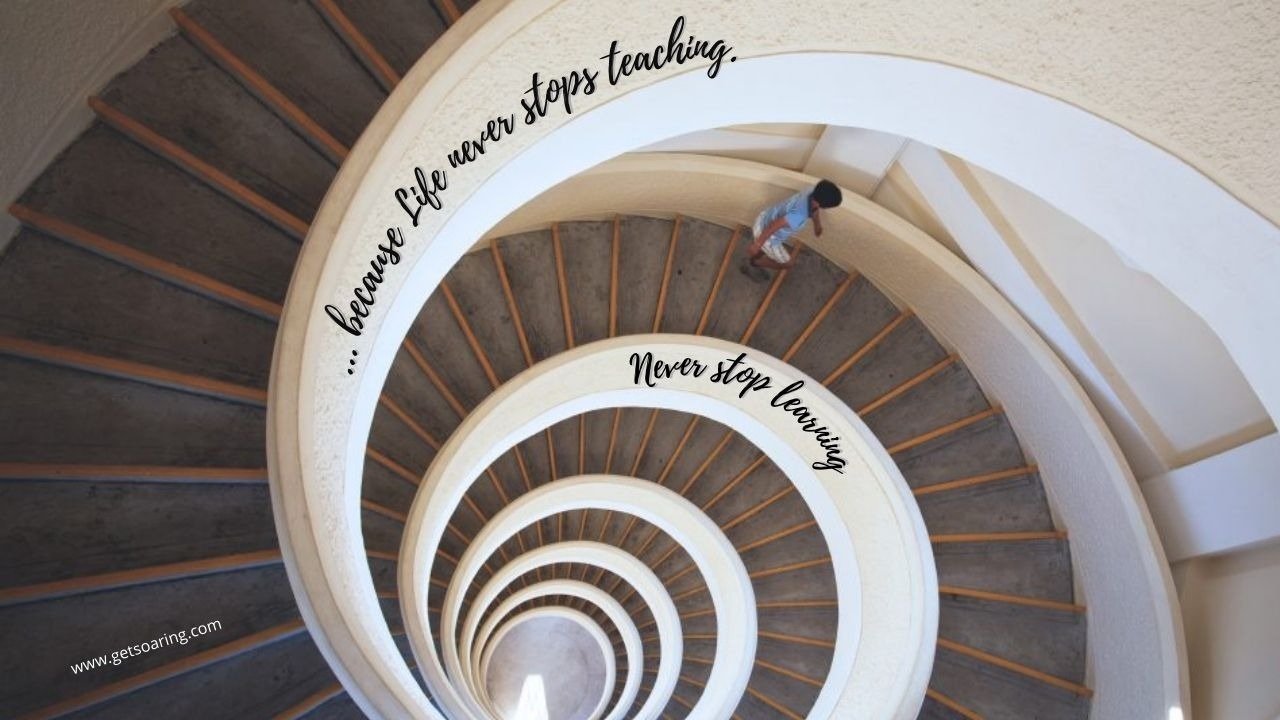
I've been in some good learning over the past weeks. Most of it was amazingly generative and connecting. Some of it was disturbing. A bit of it happened solo with my eyes closed. And all of it points to the unique choices we are making now.
In the dojo
At the end of May I headed to a "Dojo for Dojomakers" hosted on a small island off the coast of Sejs (Jutland) in Denmark. Before I tell that story, let's get the immediate question out of the way: "What is a dojo and what is a dojomaker?", I can hear you asking.
"Dojo" is a Japanese word, a composite of two things. Your "do" (pronounced like dough), is your "way", the thing that you are practicing. And "jo" refers to the place of practice. Dojo, therefore, is literally "the place where you practice your way." Martial artists practice aikido, karate, and taekwaondo in a dojo, but a dojo is not limited to martial arts.
I call my online story community "THE STORY DOJO" because I want to allude to the disciplined commitment and regular practice it takes to get good at something. Practicing together well takes mutual respect and caring for the practice together. This is the quality of space I want to offer online.
Back to Denmark...
There were about 25 in the circle. We came from all around the world, intending to learn from and with each other. Each of us is interested in community, and each of us is practicing peace in our own unique way. All of us have intersected with Toke Paludan Møller at some point, and have taken influences of Art of Hosting and his "Warrior of the Heart" into what we do.
Our gathering was based in nature. We canoed or boated to "Dojo Island" each day, recognising that spending focused time reaching the circle is part of the journey. Once we arrived on the island, we checked in and spent our time in Open Space. We were out in the elements, gathering by the fire when it got cold or we wanted to harvest our collective learning. Everyone chose where they wanted to be most and the two under seven year olds went from adult to adult as they saw fit and depending on what they needed. Everyone pitched in.
The rhythm of the event mirrored what we've learned about dojos and dojo making:
- Being part of an inquiry allows everyone to contribute where they most feel called and opens the doorway for the unexpected to show up. Learning continues to arrive.
- While those gathered had some common foundational influences, each of us practices in our own way and each of these expressions are useful in their own way. We can continue to learn from and contribute to each other.
- Coming together allows us to see what seeds have taken root and what is now coming to fruition
- Taking care of the space and each other builds community and commitment
- Having multiple generations present means the circle of life is represented and our perspectives stretch beyond our own horizons
On the final day before I flew out to Sweden, Toke and I had a conversation committing once again to working with the foundational story of the European Union. It is a peace story. And a story that needs to be told.
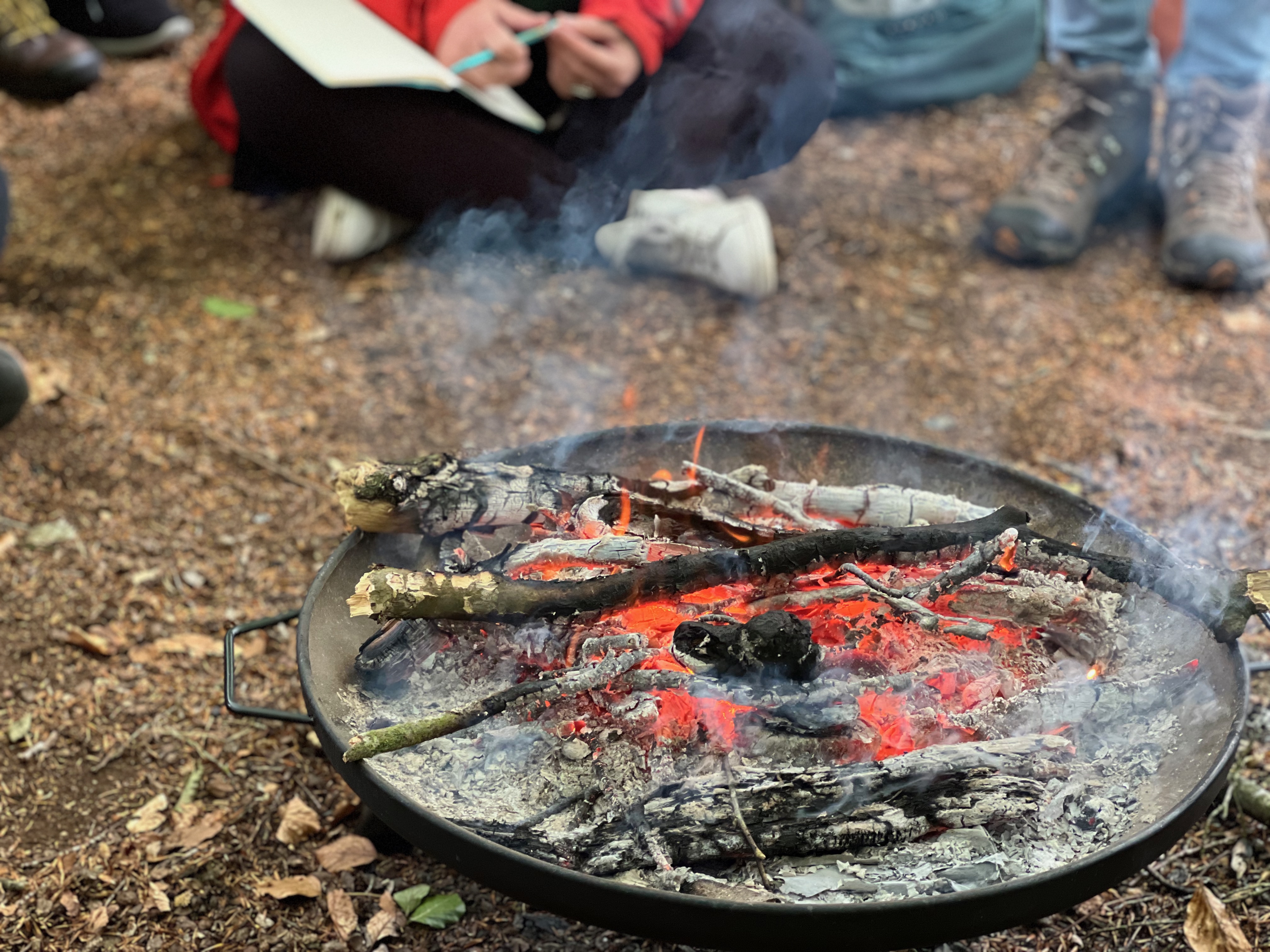
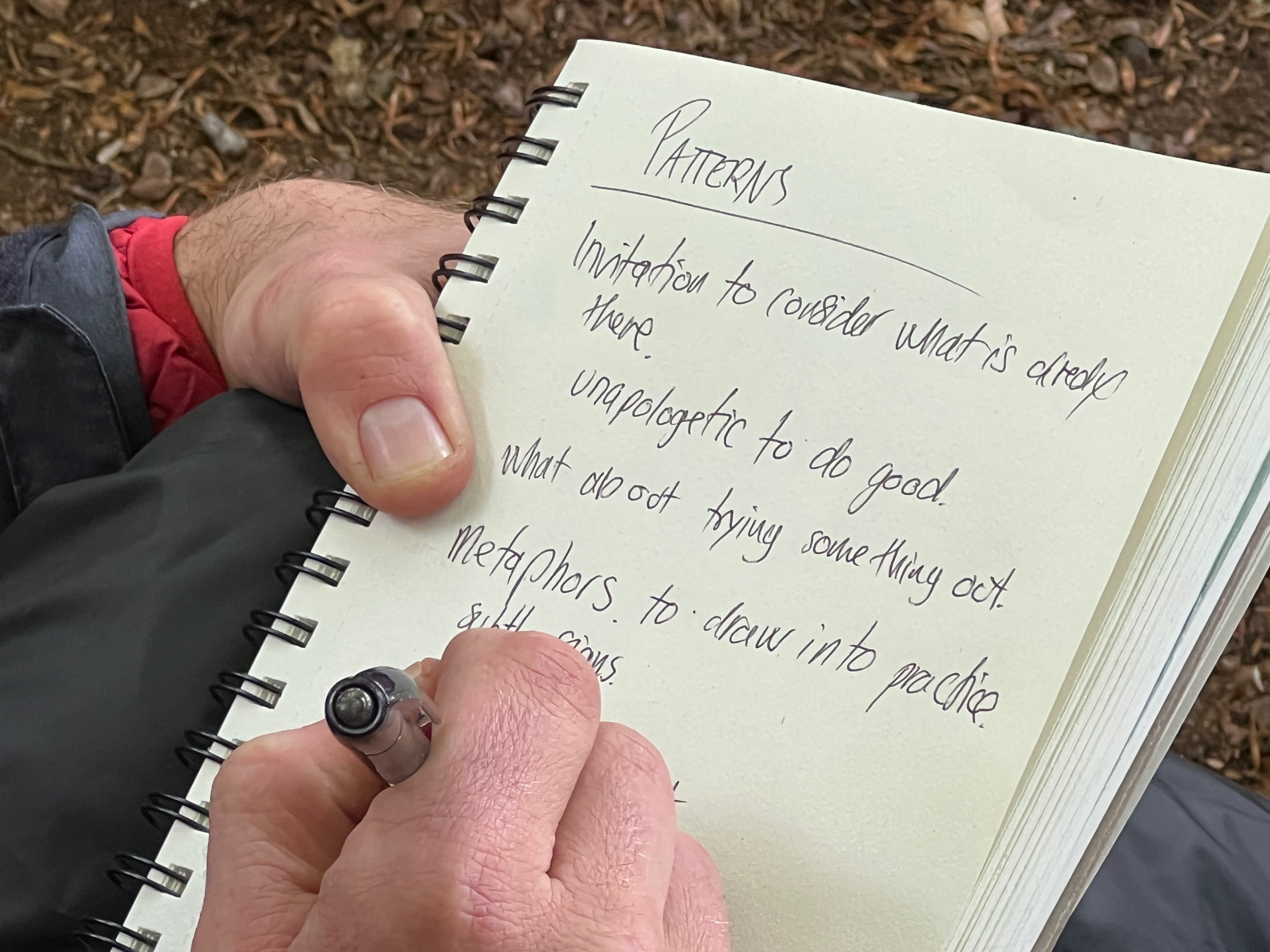
In the conference room
I arrive in Stockholm to attend the Society for Organizational Learning (SOL) Plaza, a two day meeting held at a hotel. There were about 60 in the circle and an additional 20 online. We came from all around the world, intending to learn from and with each other. Unlike the gathering I'd just come from, though, this would be what I'd call a "forward facing" meeting. Most of the attention was focused to the front of the room. There are keynote speakers and Q&A moments. I'm surprised to find out that all the keynote speakers are white men.
Fortunately, there are interactive moments. The afternoon of the first day is dedicated to learning circles, where there are variety of hosts (me included, offering my experience of working with the story of Denmark going bankrupt in 1813). My friend Ulric Rudebeck offered a very intriguing conversation around the question "Is humanity worth saving?", entering it with a rather pessimistic sense and coming out of it with hope.
Meeting delicious new colleagues during the day and an evening of stories from our table of five women, especially what they learned working with those in the red light district, settle my need for connection and community in this event.
On Day 2 I opt for one of the Learning visits called "What we can learn from the last indigenous people in Europe" which begins with a film from Björn Ola Lind about the Saami people. This is his third film, Mjandasj - The reindeer's councillor, focusing on the Saami and it centers on the reindeer herders. I find out that once, we were all reindeer people, following the herds after the ice age. This is a culture which has over 300 words for ice and snow but no word for war. I'm fortunate to ride with him to Skansen, Stockholm's open air museum, where we visit two Saami buildings and learn more about how they mirror the Saami cosmology. Suddenly the film becomes personal and the meaning embodied in a person right in front of me.
The day ends with a video call featuring Peter Senge and Jan Artem Henriksson on the work around the Inner Development Goals. "Knowledge" seems to be an important word here and I wonder what has happened to learning. Such important work, yet I have the sense it is once again Euro-centric, male-led and expert focused and I wonder what that says to us. We talk about a "new paradigm" and "new ways of working" and yet we still fall back on expert focused, leader referenced ways of meeting and thinking. We divide up the parts of a meeting, losing the sense of wholeness.
Which means we practice the old arts as we always have done. We find our connection, understanding and growth around the edges of the program, with people we chance to meet.
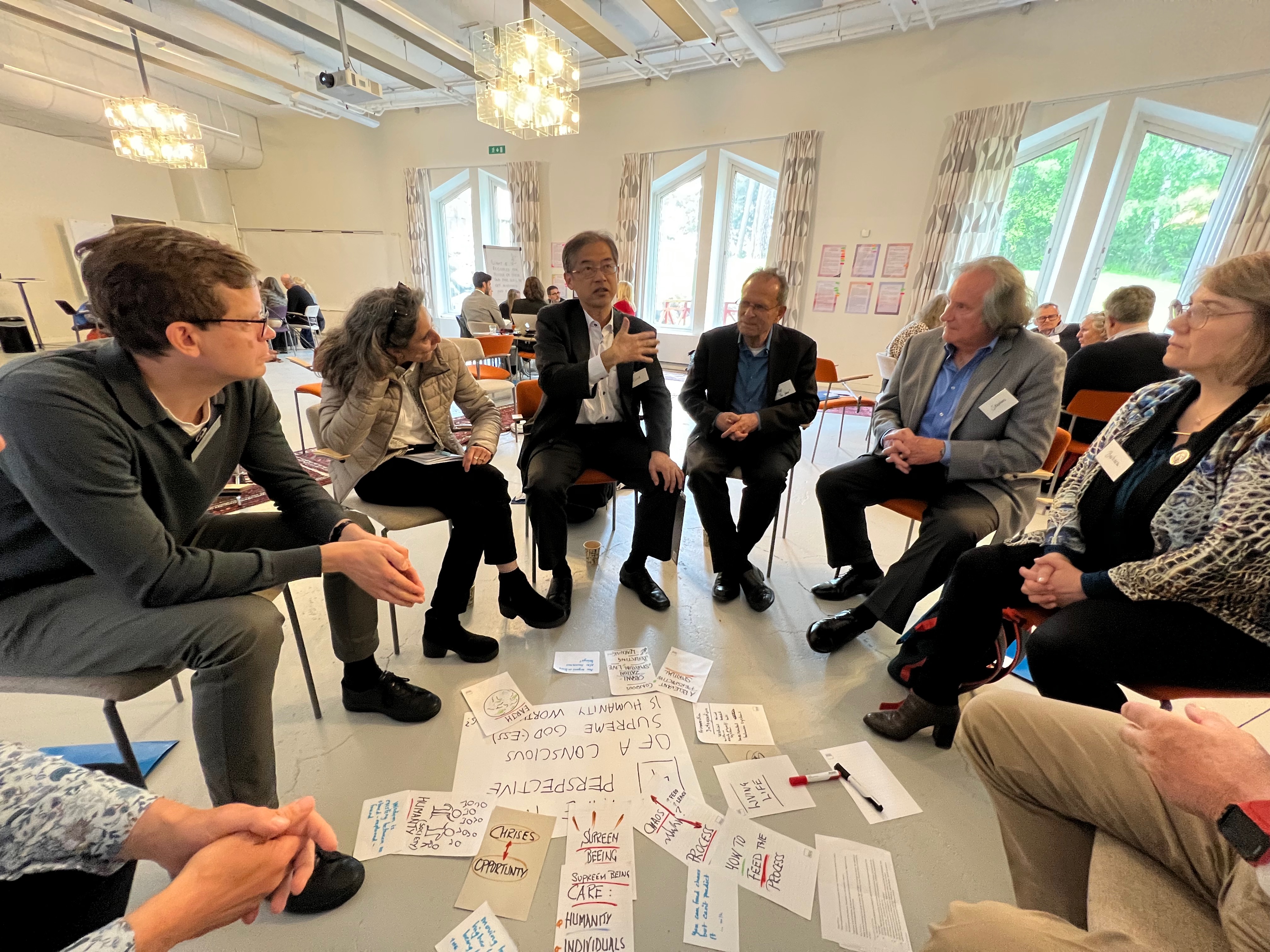
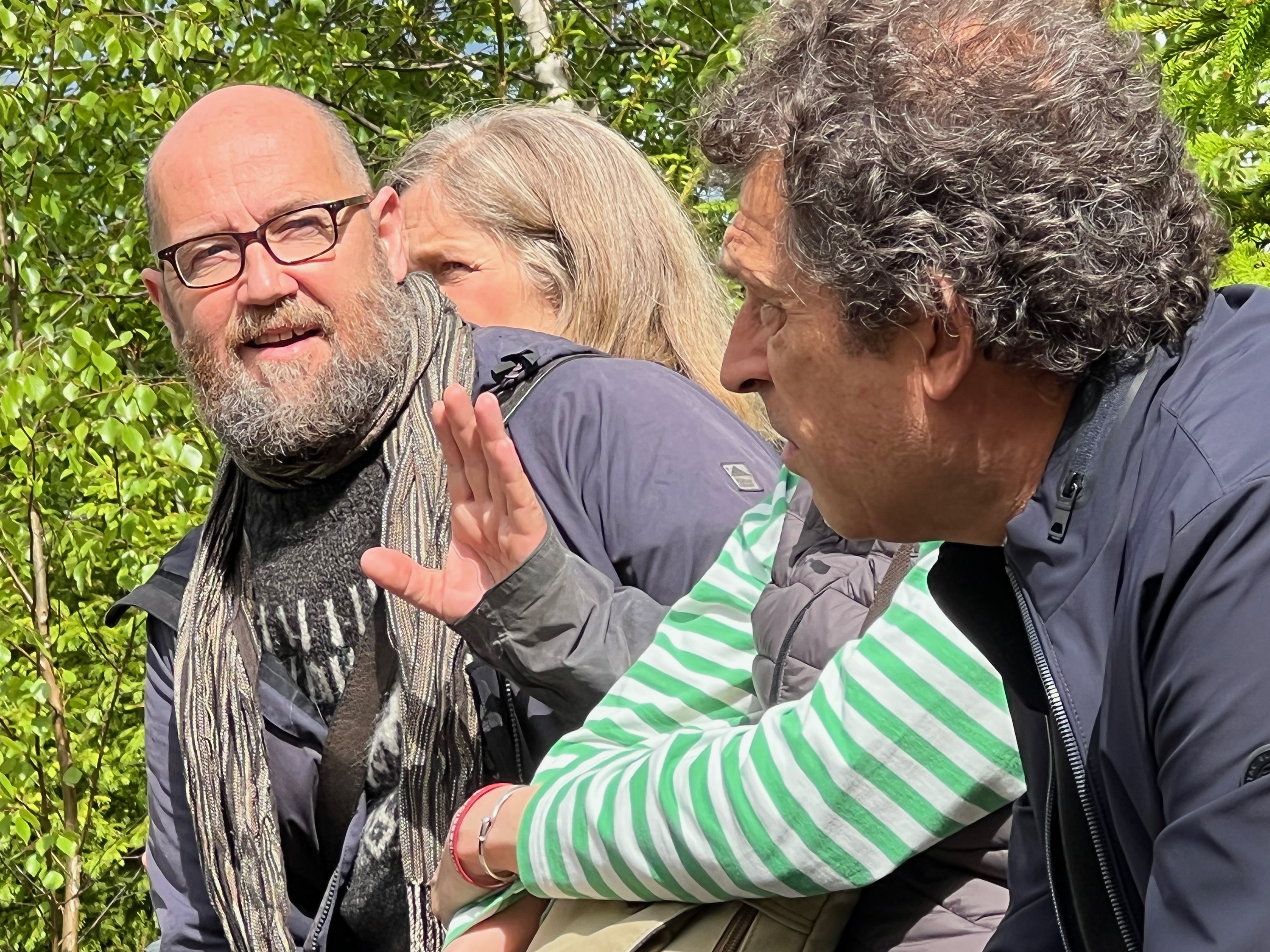
Learning about culture
And the final bit of learning?
Just as I was about to head back to Denmark, I began to feel unwell. I had my first ever COVID test to find out that I'd taken away more than new friendships from my group experiences. Suddenly I was forced to search out a hotel room and self-isolate.
I spent the week alternatively with my eyes closed or reading or watching Netflix. My brain didn't really work. I didn't care, but just relaxed into it completely. I felt like I was living in a casino, unsure what time it really was and unaware of what was happening in the world.
During this experience, a friend helped me to understand the Swedish stance on life. Over 100 years ago, Scandinavia began to move towards what they intended to be a more just and equal society. This has led to great advances in lifestyle, but also to a rule based culture. There are other cultures that are relationship focused. People will do something for you if they like you or have a connection with you. Here, you need to know the rules.
He helped me to find a drop in emergency care center where I hoped a doctor could give me a medical certificate so I could get a refund on the train I had to miss. The nurse asked us to wait outside the full waiting room.
We saw an empty waiting room across the hall and sat there. Pretty soon a person arrived to find out whether we were waiting for a blood test. Since we weren't, we had to leave the waiting room and go stand at the top of the stairs. An immediate demonstration of a rule-based culture.
I soon learned that since Sweden no longer sees COVID as an emergency, if I wanted to see a doctor, I would have to go to the local hospital and wait in the emergency room. The nurse advised that might be a wait of up to 8 hours. I decided I'd had enough of rule demonstrations and headed back to the hotel.
Sometimes you can gain more by closing your eyes and reflecting...
So what was that all about?
Each of these experiences was a unique learning and together, they reflect something about what's going on in the world right now. Here are the questions they raise for me:
- Why are interactive, co-created forms of meeting still so rare? What can we learn and prototype from coming together in inquiry and co-creating our experience?
- What can we learn from natural ways of being? What can nature teach us about returning to simplicity and focusing on what's really important? How can we work/learn/live together in a way that allows all the generations to contribute and benefit?
- We long for "the magic in the middle" and yet many of the ways we meet can exclude it from happening. How can we create more balance between expert knowledge and collective sense and meaning making? How can storytelling and hosting serve to help our meetings bring us to new places in our thoughts and actions? In what ways can more people gain experience of hosting the whole so each gathering supports us to learn and grow together?
- What would we see if we could have the eagle-eye view and look for the larger patterns? What can we learn from the various ways human beings practice culture that could better serve us all as we move into the future? What encourages us to look after each other and navigate well-being?
Isn't it time to have a brilliant ally on your side?
Subscribe to my newsletter for the latest about the power & practice of story.
We hate SPAM. We will never sell your information, for any reason.
